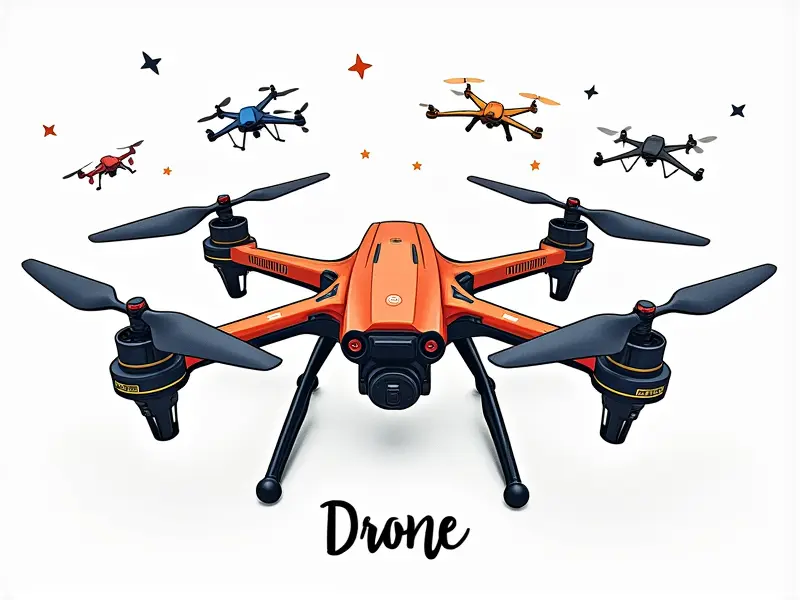Is flying an FPV drone legal?

Is Flying an FPV Drone Legal in Your Area?
Flying a first-person view (FPV) drone has become increasingly popular among enthusiasts and hobbyists alike. However, with the rise of this activity comes a growing concern about legality. Is flying an FPV drone legal where you live? This article aims to provide clarity on the rules and regulations surrounding FPV drones in various regions.
Understanding the Rules for FPV Drone Flight
The first step towards understanding whether it's legal to fly an FPV drone is knowing the specific regulations set by your local government. In many countries, there are strict guidelines that dictate where and how you can operate these devices. These rules often vary based on factors such as proximity to airports, residential areas, and public spaces.
Can You Legally Fly FPV Drones Where You Live?
The legality of flying an FPV drone depends heavily on your location. For instance, in the United States, the Federal Aviation Administration (FAA) has established specific regulations for drones under Part 107 of the Federal Aviation Regulations. These rules mandate that operators must maintain visual line-of-sight with their aircraft and adhere to altitude restrictions.
FPV Drone Regulations: A Quick Guide
- Registration: Many countries require drone pilots to register their devices before flying them publicly.
- Airspace Restrictions: Certain areas, such as near airports and military bases, are off-limits for FPV drones.
- No-Fly Zones: There are designated no-fly zones where drone operations are strictly prohibited to ensure safety and security.
The Legalities of Operating FPV Drones Today
In addition to airspace regulations, there are also privacy concerns associated with flying FPV drones. It's crucial for pilots to be aware of their surroundings and respect the personal space and privacy of others. Unauthorized surveillance or capturing sensitive information can lead to legal repercussions.
Privacy Concerns
- Residential Areas: Flying over private property without consent is illegal in most places.
- Public Events: Capturing footage at public events requires adherence to local laws and regulations regarding privacy.
Are FPV Drones Legal in Your City?
To determine the legality of flying an FPV drone in your city, it's essential to consult local aviation authorities or relevant government websites. These resources provide detailed information about specific rules and restrictions applicable to your area.
Local Regulations
- Contact Local Authorities: Reach out to your city’s aviation department for the most up-to-date guidelines.
- Check City Websites: Many cities have dedicated sections on their websites outlining drone regulations and restrictions.
Navigating FPV Drone Laws in Your City
Finding out whether you can legally fly an FPV drone near your residence involves more than just understanding national laws. Local ordinances may impose additional constraints, such as noise levels or operating hours. It's important to stay informed and comply with all applicable rules.
Additional Constraints
- Noise Levels: Some cities have strict regulations regarding the decibel level of drones during certain times of day.
- Operating Hours: There may be restrictions on when FPV drones can be flown to minimize disturbance to residents and wildlife.
Understanding the Laws for FPV Drone Pilots
Becoming familiar with the laws governing FPV drone operations is crucial not only for legal compliance but also for ensuring safety. By adhering to these guidelines, pilots can enjoy their hobby while minimizing risks and potential conflicts.
Safety Considerations
- Visual Line-of-Sight: Maintaining visual contact with your drone is a fundamental requirement in many jurisdictions.
- Risk Management Plans: Having a risk management plan can help mitigate potential hazards and ensure safe operation.
Can I Legally Enjoy FPV Drone Racing?
If you're interested in participating in FPV drone racing, it's important to know the specific rules governing these events. Most organized races have their own set of regulations that participants must follow to ensure fair play and safety.
Racing Regulations
- Event Guidelines: Each race typically has its own set of guidelines, which include airspace restrictions and equipment requirements.
- Safety Protocols: Adhering to established safety protocols is crucial for the well-being of all participants.
Is It Legal to Fly an FPV Drone Near Me?
To find out if it's legal to fly an FPV drone in your immediate vicinity, you should consult local aviation authorities and city regulations. Additionally, using resources such as the FAA’s B4UFLY app can help identify no-fly zones and other restrictions.
Resources for Pilots
- B4UFLY App: This FAA-approved tool helps pilots determine if it's safe to fly in a particular area.
- Local Aviation Websites: Many cities have dedicated aviation websites that provide detailed information on drone regulations.
FPV Drone Regulations: Stay on the Right Side of Law
Flying an FPV drone can be a thrilling and rewarding experience, but it's essential to stay informed about the legal landscape. By adhering to established rules and guidelines, you can enjoy your hobby while ensuring safety for yourself and others.
Conclusion
In conclusion, whether flying an FPV drone is legal in your area depends on a variety of factors including national laws, local regulations, and specific no-fly zones. By staying informed and compliant with these rules, you can safely and legally enjoy the excitement of FPV drone flight.

